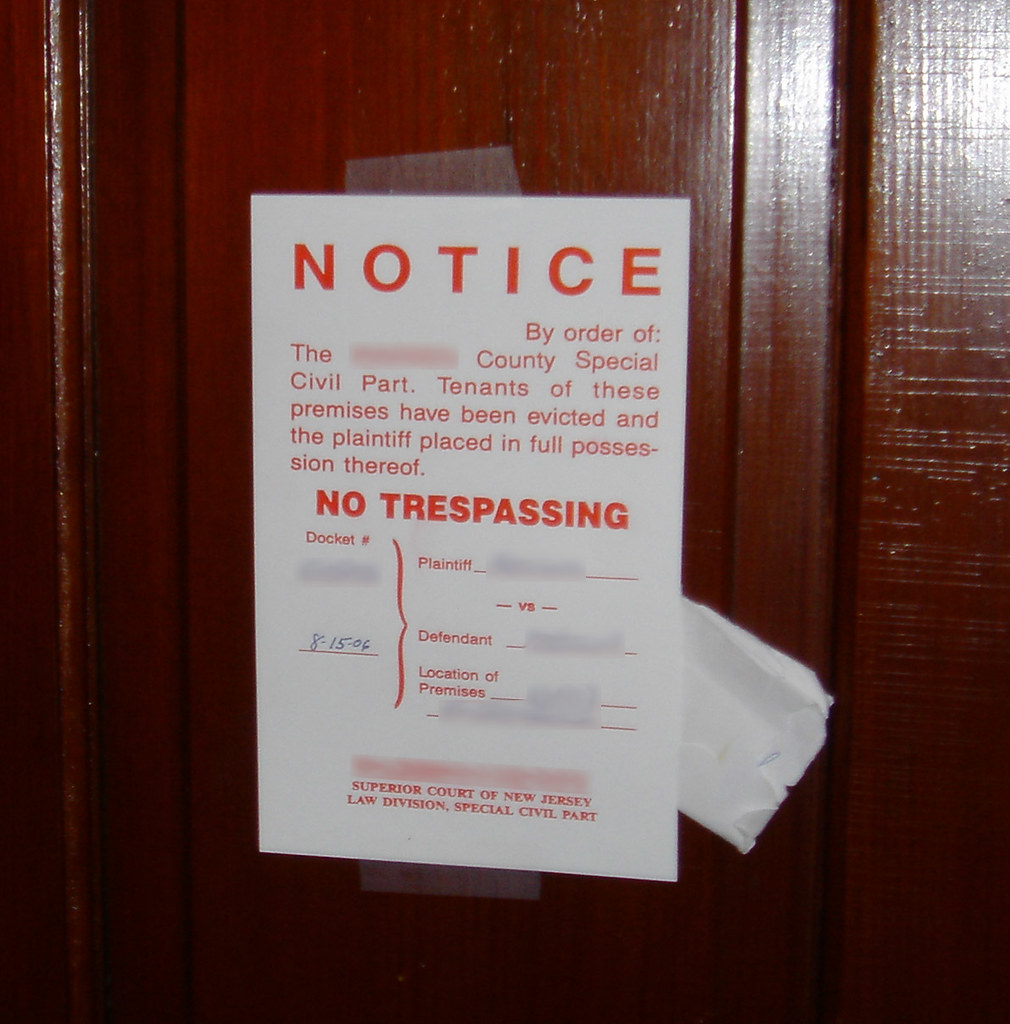OPINION: THE LOOMING EVICTION CRISIS

Photo: flckr.com
STATE AND FEDERAL GOVERNMENT NEED TO DO MORE TO PREVENT THOUSANDS OF MASSACHUSETTS FAMILIES FROM LOSING THEIR HOMES DURING THE CORONAVIRUS PANDEMIC.
Editor’s note: This column appeared previously in The Boston Globe

The day the sheriff knocked at the front door and informed us that we were being evicted, I witnessed my childhood packed into cardboard boxes.
Memories of late summer football, family meetings, and neighborhood manhunt games were in a moment stripped away, replaced with the image of my crying mother and distraught siblings as they begged the officer to retract a decision that he was only enforcing. Lacking the space to bring all of our belongings from our house, we had to abandon photo albums, journals, furniture, and toys in the empty shell of 602 Dana Court. What principally forced my family into hotels and shelters also robbed our sense of stability and community, a loss from which I have not recovered — as evidenced by my tendency to leave my belongings in cardboard boxes.
Earlier this week, Governor Baker extended the Massachusetts eviction moratorium another two months — through Oct. 17. Since April, the state has blocked most evictions in Massachusetts. This marks a first step in the fight toward housing equity in the coronavirus era, but the state and federal government need to do more to prevent thousands of Massachusetts families from losing their homes during the coronavirus pandemic.
The federal stimulus checks under the CARES Act were designed to disperse one-time payments to qualifying individuals to offset the economic costs of the pandemic. However, such a policy fails to account for the high housing costs in the state, forcing tenants to often choose between rent and basic necessities. Senate Republicans must extend this legislation to ensure individuals and families continue to receive the $600 weekly supplemental unemployment payments, providing relative stability and preventing an eviction catastrophe.
Yet renters still must pay previously owed rent or otherwise face eviction. A warning for Massachusetts: While eviction filings were nonexistent in the first few months of Milwaukee’s COVID-19 eviction ban, as the ban came to expire, rental assistance requests tripled. “Eviction filings rose in a near-identical pattern,” a Washington University study notes, though they appeared two weeks behind the rental assistance requests.
While Governor Baker invested $20 million in the creation of the Emergency Rental and Mortgage Assistance program to provide support for low-income households struggling with rent or mortgage payments during the pandemic, sufficient long-term support requires more than temporary cash infusions. It requires an immediate rent and mortgage freeze. Limited state and federal rent and mortgage relief during an eviction stoppage forestalls but does not prevent homelessness
The Emergency Assistance program, administered through the Massachusetts Department of Housing and Community Development, exists to distribute emergency shelter to homeless families with children. However, the limited and overcrowded emergency shelter units in the state would potentially worsen disease spread, pushing those evicted into unsafe living conditions, disproportionately affecting impoverished individuals and people of color.
A bill introduced in the Legislature, the COVID-19 Housing Stability Act, would remedy the impending crisis by preventing evictions for up to a year following the state of emergency and by freezing rents at pre-pandemic rates. Additionally, it would freeze foreclosures, establishing a fund to provide support for landlords.
The Legislature should consider the lasting financial impact of missed rental payments when formulating future policy. While an eviction stoppage needs to occur to prevent a worsening public health crisis, policy makers have an opportunity not only to prevent eviction for a year, but also to promote both housing production and homelessness prevention, especially for those impacted by the pandemic. Otherwise, the state will face an eviction crisis that could impose long-term psychological consequences on children and families and promote generational poverty.
As a survivor of poverty, homelessness informs my perspective and drives my hope for a future where no child must endure the same. In order to prevent the compounding crises and long-term consequences that result from poverty and homelessness, the state must pass the Housing Stability Act and supplement the moratorium with long-term strategies to address the underlying root of the eviction threat. Further investments in the Residential Assistance for Families in Transition and the Emergency Assistance programs, among other rental assistance and emergency shelter programs, will help prevent homelessness by providing monetary aid in the face of impending evictions.
An eviction moratorium alone lacks the force necessary to protect individuals, children, and families from forced displacement — by merely delaying eviction, it fails to address the root of related housing insecurity.
Timothy Scalona is a graduate student in the UMass Amherst School of Public Policy.
